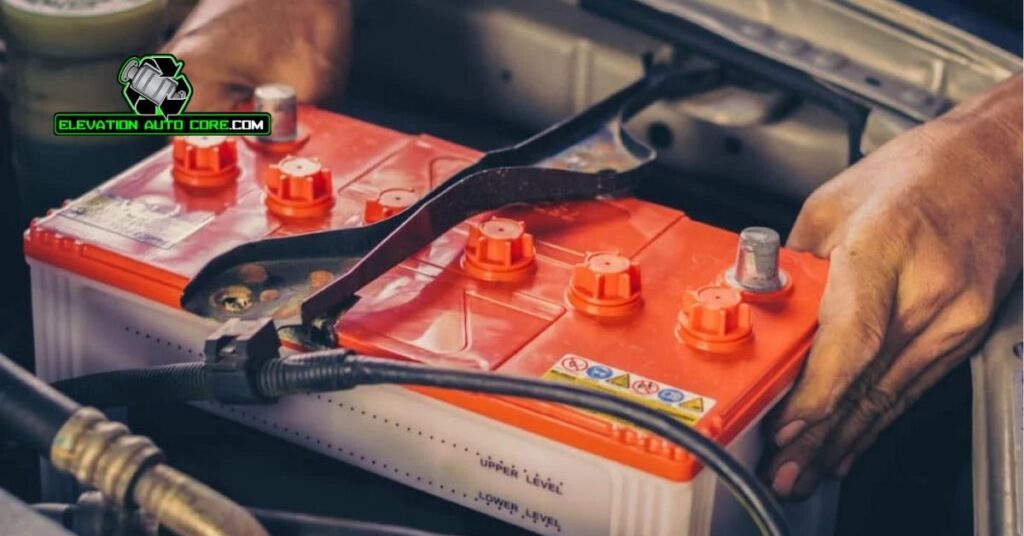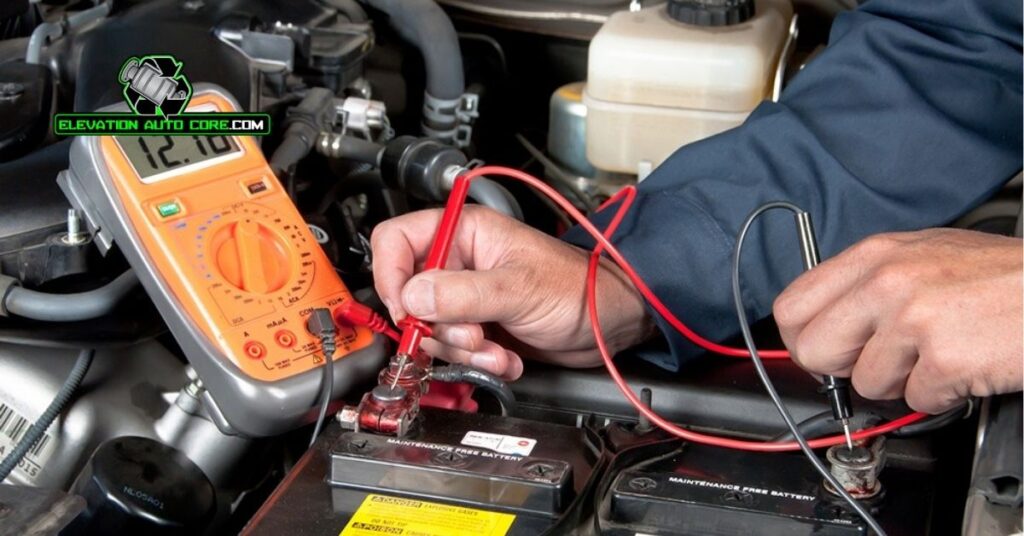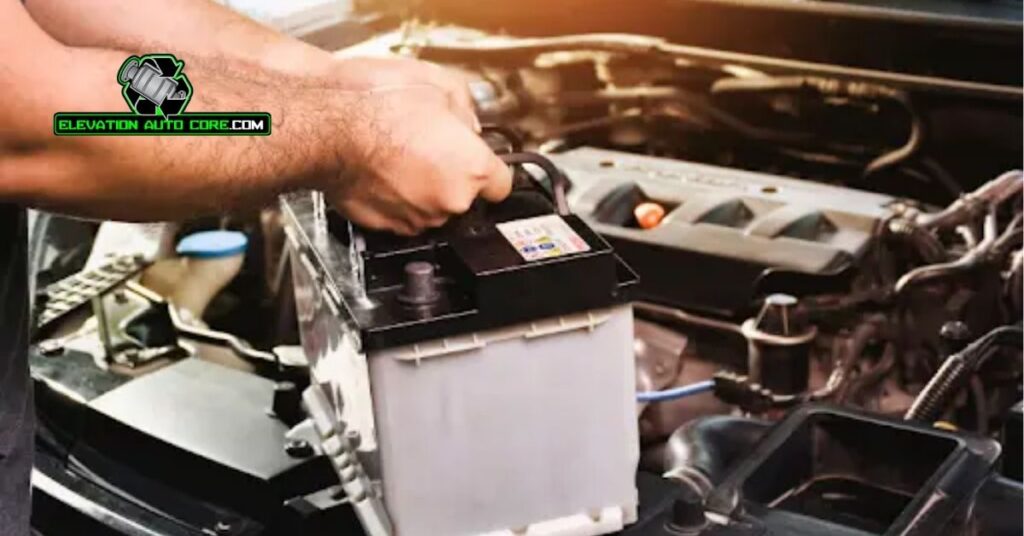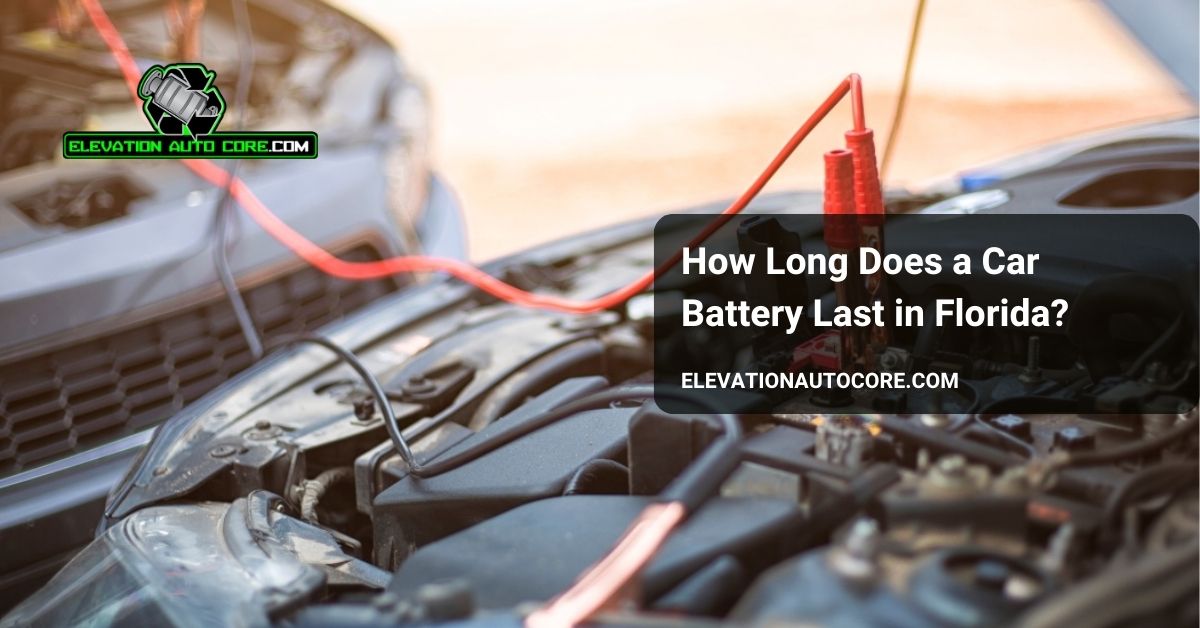How long does a car battery last in Florida’s intense heat and humidity? The Sunshine State’s climate can be tough on your vehicle’s battery, often shortening its lifespan compared to cooler regions. Understanding these challenges can help you avoid unexpected breakdowns and keep your car running smoothly. Keep reading to learn what impacts your battery life and how to make it last longer.
Factors Influencing Car Battery Life In Florida

Florida’s climate and environment play a crucial role in determining how long your car battery lasts. Other factors, including how you use and maintain your vehicle, also contribute to its performance.
Heat And Humidity Challenges
Extreme heat accelerates the evaporation of battery fluid, even in sealed designs. Florida’s high humidity further amplifies this effect, reducing the battery’s chemical reaction efficiency. Batteries operate best between 30°F and 90°F; with average summer temperatures exceeding 90°F, the lifespan can decrease significantly. Corrosion on battery terminals is more common in such conditions, leading to poor connections.
Driving Habits And Vehicle Usage
Short trips repeatedly prevent your battery from fully recharging and strain its life span. If your vehicle remains idle for lengthy periods, the battery discharges over time, especially in Florida’s conditions. Longer commutes, combined with frequent air conditioning use, can deplete energy reserves more quickly. Driving patterns, such as continuous stop-and-go traffic, also strain the alternator and the battery.
Battery Maintenance Practices
Regular inspections help you detect early signs of wear, including corrosion and loose connections. Cleaning terminals ensures proper energy flow and reduces the chance of starting issues. Checking the battery voltage every few months keeps you aware of its condition. Using insulated covers can also protect the battery from intense heat, improving durability in Florida’s environment.
Average Lifespan Of A Car Battery In Florida

Car batteries in Florida typically don’t last as long as in cooler regions. Heat and humidity accelerate wear, reducing the average lifespan compared to national figures.
Comparison With National Averages
In Florida, car batteries average around 2 to 3 years of service life. Nationally, batteries can last 3 to 5 years, depending on climate and driving conditions. High temperatures in Florida cause faster fluid evaporation, shortening battery performance. Chemical degradation also advances due to heat, further reducing longevity. Regular maintenance becomes even more critical within Florida’s climate.
Warning Signs Of A Weak Battery
Dim headlights often indicate a failing battery. Difficulty starting your car, especially in the morning, signals weakened power delivery. A swollen battery case shows internal damage from overheating, common in Florida. Corroded terminals or a sulfur-like smell suggest the battery is nearing the end of its life. Addressing these signs promptly minimizes the risk of unexpected failure.
Tips To Prolong Car Battery Life In Florida

Florida’s intense heat and humidity can shorten your car battery’s lifespan, but taking care of it helps maximize its performance. Focus on proper maintenance and informed choices to combat the harsh climate.
Maintaining Proper Battery Temperature
Protecting your battery from extreme heat is essential in Florida. Park your car in shaded areas or covered parking to minimize exposure to direct sunlight, as prolonged heat accelerates fluid evaporation. Installing a reflective sunshade inside the windshield reduces internal temperatures, providing added protection. Some vehicles allow the installation of thermal insulation around the battery, which can further regulate its temperature and maintain optimal functioning.
Regular Inspections And Cleaning
Frequent battery inspections help identify potential issues early. Check for signs of corrosion on terminals and clean them using a mix of baking soda and water if buildup is visible. Tighten loose connections to improve current flow, as poor contact reduces efficiency and can cause starting problems. Test your battery’s voltage during regular service visits to ensure consistent performance. Routine maintenance prevents issues, especially in Florida’s challenging climate.
Choosing The Right Type Of Battery
Opting for a heat-resistant battery improves reliability in Florida’s conditions. Batteries labeled as “high-temperature” or featuring reinforced casings withstand heat better, extending their life significantly. Ensure the battery’s size and capacity align with your vehicle’s specifications for compatibility. Some manufacturers offer advanced AGM (Absorbent Glass Mat) batteries, which resist heat and last longer than traditional options. Investing in a suitable battery reduces the risk of premature failure.
When To Replace Your Car Battery

Car batteries in Florida often wear out faster due to heat and humidity, typically lasting around 2 to 3 years. Knowing when to replace your battery can prevent inconvenience and ensure reliable vehicle performance.
Professional Testing And Recommendations
Periodic battery testing provides crucial insights into its condition. Auto repair shops or service centers offer professional tests to measure a battery’s voltage and overall health. These tests can help forecast failures before they occur. It’s recommended to schedule a test annually or biannually once your battery reaches two years of service in Florida’s climate. Many professionals also suggest replacing the battery at the first signs of weakening rather than waiting for complete failure.
Recognizing Failure Symptoms
Different warning signs indicate a failing car battery. Difficulty starting the engine often points to a weak charge. Dim headlights during startup are another early warning. Corrosion buildup on terminals and a swollen case suggest the battery has been severely impacted by heat. Other common symptoms include erratic electrical performance or warning lights on your dashboard. Promptly replacing the battery in response to these signs minimizes the risk of roadside breakdowns.
Conclusion
Florida’s climate presents unique challenges for car batteries, but with the right knowledge and proactive care, you can extend their lifespan and avoid unexpected issues. Paying attention to warning signs, maintaining your battery properly, and investing in heat-resistant options can make a important difference.
By staying vigilant and scheduling regular inspections, you’ll ensure your battery remains reliable even in Florida’s demanding conditions. A little effort now can save you from costly breakdowns later.

